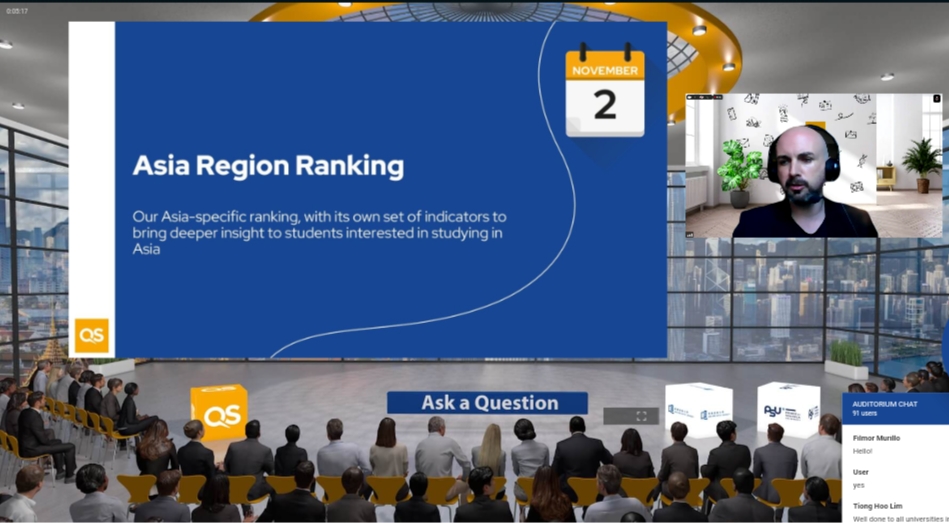UNAIR NEWS – QS World University Rankings (WUR) for many universities in Indonesia is a quality benchmark in the international arena. Universitas Airlangga is ranked #465 in QS WUR 2022. On Tuesday, November 2, 2021, the APPLE QS Conference released its ranking analysis in Asia and essential aspects that universities must pay attention to improve their rankings.
Entitled Asia Rankings Launch, QS Rankings Manager Andrew MacFarlane and QS Ranking Analyst Kendrick Ng presented the report on the qualities of universities in Asia. Andrew said that QS publishes six rankings, World University Rankings, Business and MBA Rankings, Regional Rankings, Graduate Employability Rankings, Subject Rankings, and USA Rankings.
“The six ranking areas are not only used to assess universities. However, it particularly helps prospective students to determine the best university choice for the continuation of their studies, “explained Andrew.
Until now, QS has collaborated with 687 educational institutions in Asia. For scoring, there are eight aspects that QS Asia Rankings looks at. The first aspect with the largest portion is academic reputation. The second is employer reputations followed by research quality and quantity.
“Other aspects that are no less important are faculty students, international research networks, exchange students, teaching staff with Ph.D., and internationalization,” he added.
Unfortunately, Indonesian journals are still lagging behind in the aspect of citations, even below other Southeast Asian countries such as Malaysia, Vietnam, Brunei Darussalam, Thailand, and the Philippines. In fact, citations that are included in the research assessment have a reasonably large portion in the assessment.
For this reason, in the online session, QS Ranking also invited the Head of Research Analytics of Elsevier, Dr.Yingying Zhou. Dr. Yingying specifically spoke about the use of bibliometric data in ranking.
The research expert said that Scopus publications were significant to describe the university’s research and demonstrate its international affiliation in global literature. Furthermore, the more Scopus journals issued, the greater the citation opportunities for campus academics.
In terms of academic output, Southeast Asia is still lagging behind other Asia-Pacific regions such as East Asia, South Asia, or Australia. For that, Dr. Yingying appealed to universities to increase publications and academic collaborations at the international level. (*)
Author: Intang Arifia
Editor: Binti Q. Masruroh





